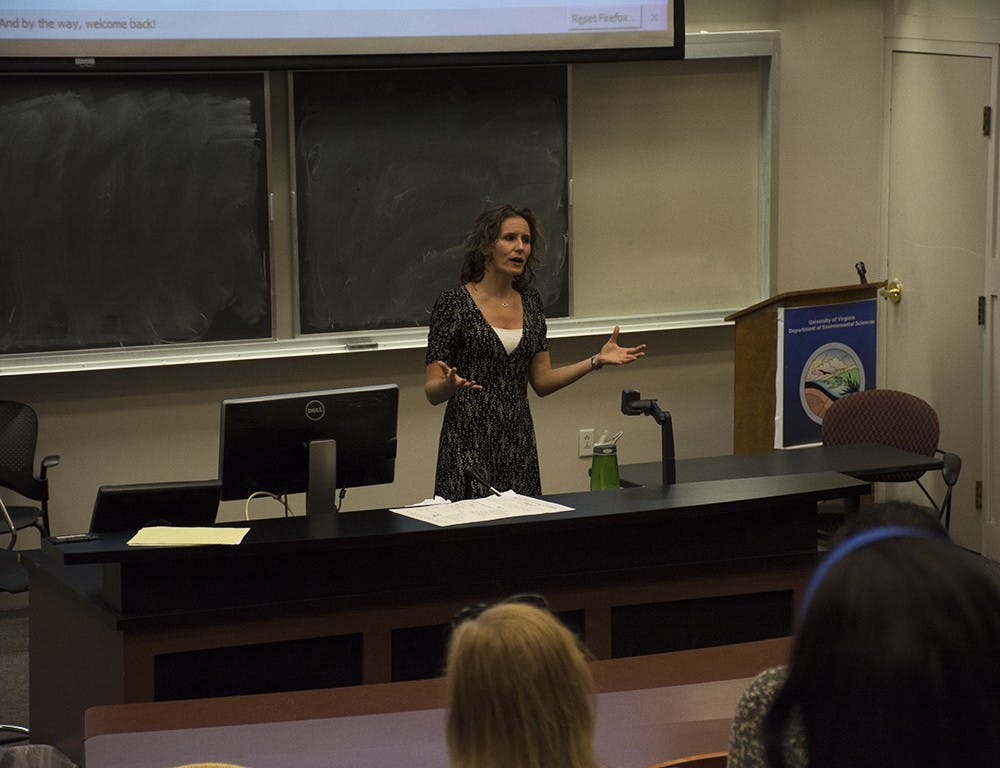The Minority Rights Coalition hosted a lecture titled “Microaggressions and You” in Clark Hall Tuesday night, featuring Curry Prof. Blaire Cholewa.
Citing Derald W. Sue, a professor of counseling psychology at Columbia University, Cholewa said microaggressions are insults or slights that communicate negative and disparaging messages to individuals based upon their membership in a marginalized group. Whether intentional or unintentional, microaggressions can lead to psychological distress and anxiety.
During the lecture, Cholewa introduced the term microaggressions, discussed its impacts on life and encouraged students to reflect upon their personal experiences.
“I aim to contextualize microaggressions in our daily lives and the potentially negative impact microaggressions can have on our mental health,” Cholewa said in an email statement. “I view the discussion as an opportunity to use the microaggression literature as frame for engaging in a discussion and reflection on our own personal stories and narratives.”
Cholewa also talked about the importance of understanding the idea of microaggressions and its impacts on mental health.
“Each of us can unintentionally commit a microaggression and thus we must be willing to engage in conversations in which we manage our defensiveness and truly listen to another’s experience of our words and actions,” she said. “We must be open to this feedback and reflect on our own biases and stereotypes, as we all have them.”
As witnesses of microaggressions, students should intervene and interrupt to debrief incidents in a safe and supportive environment, Cholewa said. As receivers of microaggressions, students should seek social support and find an outlet to cope with these experiences to secure self-esteem.
Priyal Gandhi, a third-year College student, said she considers microaggressions a reminder of “how much more we have to learn about the world we live in and the people around us,” because she said even the most well-meaning of people can be imperfect.
“If you feel badly about something, it is a microaggression. You should own it and you should honor that feeling and you shouldn’t deligitimize your experience,” Gandhi said. “And even being the victim of [a] microaggression doesn’t mean that you are the one who doesn’t give a microaggression.”
Gandhi also said students at the University should acknowledge that microaggressions are valid and real.
“I think U.Va. is sometimes too segregated and many of us live or partake in communities where everyone is seemingly the same,” Gandhi said. “And we forget that these same people are multidimensional and may hold different identities. If you unfortunately commit a microaggression, you deserve to learn from that, learning how to apologize, how to move forward and how to spread out the knowledge to others.”







